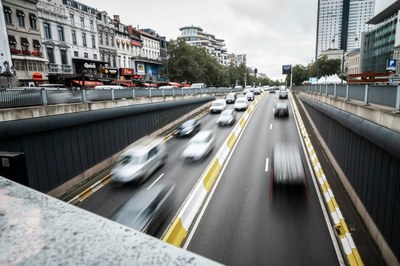All official European Union website addresses are in the europa.eu domain.
See all EU institutions and bodiesEurope’s urban centres offer opportunities for citizens to produce renewable energy as prosumers according to a European Environment Agency (EEA) briefing, published today. Cities can play a key role in Europe’s shift to a low-carbon future. Facilitating urban prosumption can help accelerate this process.
Around three quarters of the EU’s total population live in cities and suburban areas, and this proportion is projected to increase. Cities are also responsible for a large proportion of carbon emissions. The dynamism and density of cities mean that they have great potential to become models for low-carbon lifestyles. Urban prosumers can make a critical contribution to decarbonising their communities.
The EEA briefing ‘Energy prosumers and cities’ builds on recent EEA work on prosumption by focusing on challenges and opportunities that urban areas present and how local authorities can promote prosumption in their cities.
Cities have a role to play
Municipalities can support prosumers by providing publicly owned spaces or encouraging other private building or landowners to offer spaces that can be used for citizen-led energy generation. These can include rooftops of schools, hospitals, apartments or unused lands which can be used to install solar panels or other renewable energy technologies.
Local authorities can also offer targeted financial incentives for companies to promote citizen participation and encourage public involvement in energy planning. Municipalities can also act as information hubs and contribute to building the right skills to help those interested in installing renewables.
Each city is unique but they have some common attributes that establish a setting for prosumption that is distinct from more rural areas, for example:
- Establishing prosumption in cities is more challenging than in rural areas because of the limited space available for energy generation and the more complex arrangements for the ownership of surfaces (such as rooftops in apartment blocks).
- Cities are more densely populated than rural areas, making rooftop solar technology the renewable technology of choice. High population densities also make heat grids more profitable, offering potential to develop prosumer initiatives related to heat grids in cities.
- More people live in apartment blocks, which opens opportunities for collective action but makes it harder to coordinate investment.
- Short travel distances make cities ideal for using electric vehicles, both private and public. Urban prosumer concepts are more likely to involve coupling with mobility.
- Cities can offer opportunities for developing integrated energy districts, for example, when areas within a city are redeveloped or new areas are added.
- Generating electricity outside the city (off-site generation) opens up possibilities for prosumers to overcome the lack of space.










